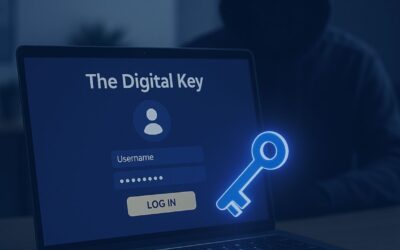Most of us carry our phones everywhere, trusting them with everything from passwords to private business conversations. But here’s the unsettling truth: phone tracking is far more common—and easier—than most people realize.
Whether it’s a jealous partner, a disgruntled employee or a cybercriminal targeting your business, anyone with the right tools can monitor your location, read your messages or even access sensitive business data without you ever knowing. And for business owners, that puts more than just your privacy at risk. It puts your operations, clients, and bottom line in danger. In this blog, we explore this often overlooked cyber security threat and walk you through how to stop phone tracking.
How Phone Tracking Works
There are several ways someone might track your phone:
- Spyware Apps: Someone can secretly install this software on your phone to monitor calls, texts and app usage. A few of these tools can even activate your microphone or camera without your knowledge.
- Phishing Links: Clicking a malicious link in an e-mail or SMS can silently download tracking software onto your phone.
- Location Sharing: Apps with excessive permissions, or social platforms you forgot you’re still logged into, may share your location in the background.
- Stalkerware: This specific type of spyware hides in plain sight, often disguised as harmless apps or settings tools.
Many companies sell these methods commercially under the guise of “monitoring software,” and they don’t require advanced hacking skills.
How to Stop Phone Tracking: Why This A Big Deal For Business Owners?
If you run a company, your phone likely contains more than just personal messages. Think: e-mails with confidential client data, saved passwords, banking access and employee records. A compromised phone can be an open door to your entire business.
The scarier part is the likelihood that you won’t realize you’re being tracked until it’s too late, after an account is drained, a deal is leaked or customer trust is broken.
Consider this: a single data breach costs US small businesses an average of $120,000 (Verizon Data Breach Investigations Report). If your device is the weak link, that breach could start in your pocket at any moment.
How to Tell If Your Phone Is Being Tracked
Most spyware tools run quietly, but there are still signs to watch for:
- Check for unexplained battery drain or overheating.
- Look for unfamiliar apps or icons.
- Monitor data usage for unexpected spikes.
- Listen for background noise during calls.
- Use a mobile security app to scan for threats.
These symptoms don’t guarantee your phone is compromised, but you should investigate them when they’re coupled with other unusual behavior.
Steps to Remove Spyware from Your Phone
If you need to stop phone tracking, here’s what to do:
- Run A Security Scan: Use a reputable mobile security app to detect and remove spyware or malware. These tools can also monitor your device in real time and alert you to new threats.
- Check App Permissions: Go through your app list and review permissions. Disable unnecessary access to location, microphone and camera—especially for apps you rarely use.
- Update Your Phone: Security updates often include patches for vulnerabilities that spyware might exploit. To stop phone tracking, make sure your phone is running the latest OS.
- Perform A Factory Reset: If you uncover spyware and it’s difficult to remove, a factory reset provides the most thorough option to stop phone tracking. Back up critical data and change all important passwords after the reset.
- Set Up Security Controls: Use biometric logins (like Face ID or fingerprint) and enable multifactor authentication on critical business apps and accounts.
Stop Phone Tracking: Don’t Leave Your Phone—And Business—Exposed
Because you’re a business owner, your phone is more than a personal device. It’s a mobile command center, customer file cabinet and sometimes a virtual vault. That’s why keeping it secure should be nonnegotiable.
Cybercriminals are opportunists, and a compromised mobile device gives them an easy way in—no firewall needed.
If you’re serious about protecting your data, your team and your clients, start with a FREE Network Risk Assessment. We’ll help identify hidden vulnerabilities in your systems and devices and recommend a path forward.
Schedule your FREE assessment today.
Frequently Asked Questions
Can someone track my phone without installing anything?
Yes. Some tracking methods exploit vulnerabilities in your phone’s operating system or use cloud-based account access to monitor activity without installing software.
Is it legal to use phone tracking apps?
It depends on the jurisdiction and the context. Using tracking apps without consent is illegal in many regions and can result in criminal charges.
How do I know if a tracking app is hidden on my phone?
Look for unusual behavior like battery drain, data spikes, or unfamiliar apps. Security apps can also help detect hidden software.
What’s the difference between spyware and stalkerware?
Spyware is a broad term for software that gathers data without consent. Stalkerware is a type of spyware specifically designed to monitor individuals, often used in domestic abuse cases.
Can antivirus apps detect all types of phone tracking?
Not always. Some advanced or customized spyware may evade detection, which is why multiple layers of security are recommended.



